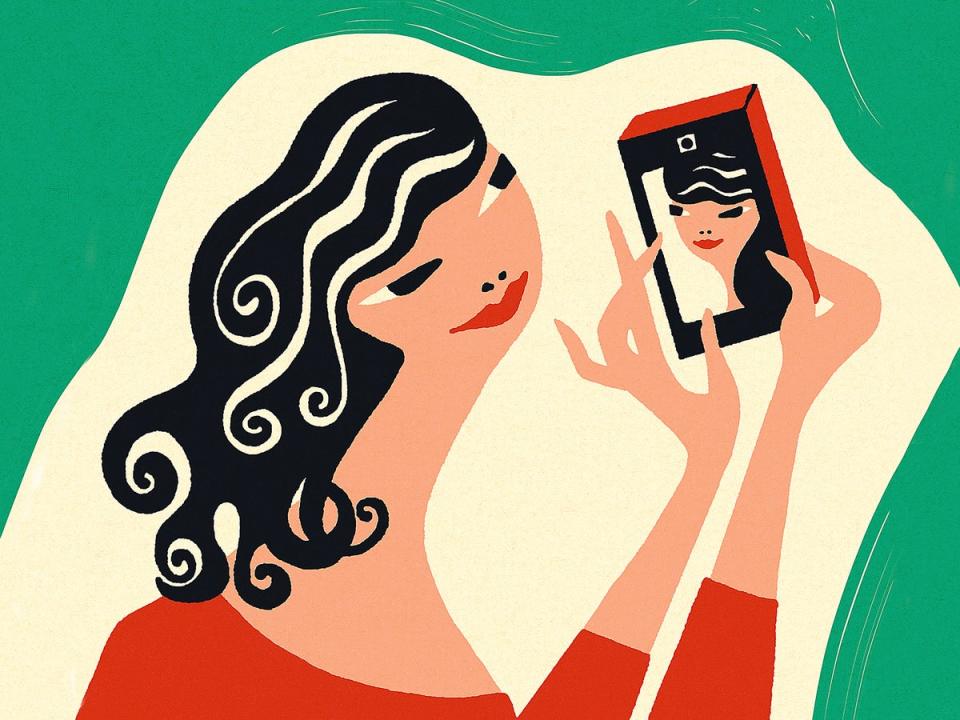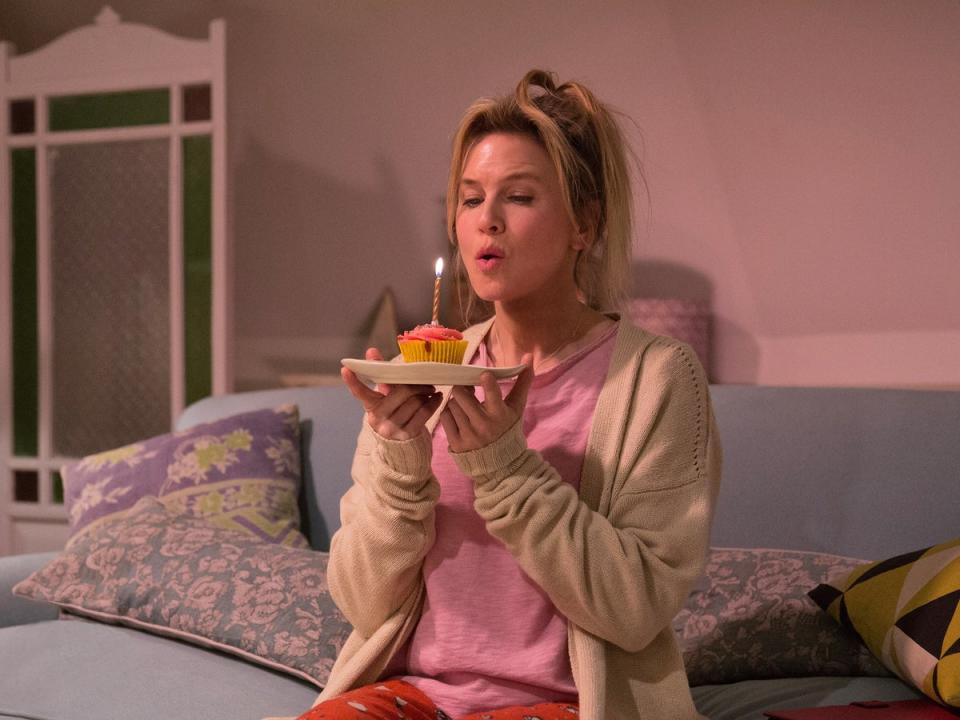‘Lose the mirror selfie immediately’: I asked dating gurus to help me shake off seven years of singledom

Browsing dating apps in 2023 is an exercise in despair. Ghostings. Empty bios. The occasional felon. It’s a jungle out there. And yet there seems to be no way around them – especially if you’re like me. I am plagued by prolonged singledom, and part of a friends circle otherwise made up of happily married couples. My own day of reckoning came in January this year, when it suddenly hit me that I’ve been single for seven years.
The photo memories on your phone have a way of piercing a hole through your heart when you least expect it. It was days into the New Year when I was rudely notified that my last boyfriend and I had broken up “on this day” in 2016. Horrified, I was jolted into action, redownloading Bumble and Hinge. I scrounged around for half-decent selfies, tried to think of two truths and a lie about myself that I could put in my app bio, and recklessly swiped right and left. The next morning, though, I woke up to zero matches. A wave of sadness washed over me. “I’m the problem, it’s me,” I sighed, unintentionally quoting Taylor Swift – before realising that for all her self-awareness, she at least has Joe Alwyn to come home to.
It turns out that I was partly correct – or at least when it comes to how I use apps. How do I know this? I asked four social media dating experts to shake the dust off my profiles. The results were a revelation. My fortnight-long experiment with new, expert-approved profiles taught me that there are bad and better ways to use apps. The main goal, I’m told, is to make it really simple for someone to start a conversation with you.
“One of the frustrations I hear from women is that guys aren’t starting good conversations – but what are you giving them to work with?” says dating coach Ali Jackson when I show her screenshots of my Hinge and Bumble accounts. There are simple ways around this, she tells me. Rather than littering your profile with stock responses like “I love to travel” or “I love wine”, share more of who you are and what you’re looking for. Include direct questions that make it easy for a potential match to chat you up. For instance, a prompt such as “What I order for the table” deserves better than “Chips and beer” as a response. Instead, try: “A round of beers – always hazy IPAs. What’s your order?”
Jackson adds that on Hinge, every single one of your pictures should also have a prompt. Data provided by the app backs this up, suggesting that photos with prompts get more likes and comments than those that don’t. “They give people really easy ways to talk to you,” she explains. “And especially on Hinge where you’re not the one making the first move.”
Your choice of prompts can also affect your success on apps, says Marin Haugo, who went viral on TikTok in February after going on 28 dates in 28 days. Not only did she complete the challenge, but Haugo also ended up meeting three promising men whom she intends to keep dating. I ask her to divulge her secrets. “Choose prompts that are fun and light, don’t write a paragraph, and keep it positive,” she tells me. Ilana Dunn, a former Hinge employee and now the host of the Seeing Other People podcast, agrees. She says negativity on dating apps is a turn-off and calls one of my prompt responses – “My personal hell is dirty bathrooms” – “unsexy”.
I kind of see it as expecting to get in really good shape by sitting on the sofa. It’s not gonna happen
Benjamin Daly, author and dating coach
Choosing your five photos is the next big stumbling block. The first picture on your profile is the most important, says Benjamin Daly, an author and dating coach whose bite-sized videos have earned him over 1.2 million followers on TikTok. “We need to get a high-quality photo of your head and shoulders,” he tells me. “It’s all about the eyes – on dating apps, people need to be able to see your eyes quickly because, like with a TikTok, the first second is the most important.” For the others in your gallery, Dunn recommends candid photos that capture your interests and tell a story about you. Avoid using old pictures, Jackson adds, or photos of yourself with just one other person. “I don’t like one-on-one pictures because it invites comparison,” she says. “And the mirror selfie I would get rid of immediately.”
If you’re overhauling your online dating profiles like I did, Dunn recommends deactivating your accounts and starting fresh. “The algorithm is going to treat you the same based on your profile before, and the people who were swiping left on you before versus swiping right,” she explains. “If you start over with this new profile, with better pictures and more thoughtful prompts, you’ll likely have more right swipes than before.” It’s a bit of an app hack: it will think you’re a new user and will want you to have the best experience, so you’re going to get better access to the best of the best people. Dunn does caution that this will drop off after a few days, though. “It’s not the magic pill that it will seem like, but it will ultimately help the algorithm [get to know] you better.”
With my prompts and pictures in somewhat better shape than they had been, I noticed an increase in the number of likes I was getting on Hinge almost immediately. There was also a heartening uptick in the number of people I was matching with on both Hinge and Bumble. I spent a week putting myself out there, preparing myself to start new conversations. If fixing your profile is half the battle, speaking to future soulmates is a whole other beast. Haugo advises erring on the side of giving people a shot who might not be your usual type. All the experts I spoke to reiterated that there is no shame in asking out someone you fancy (“If you don’t ask, you don’t get,” Dunn says) and that instead of being fearful of “making the first move”, just reimagine that concept as merely starting up a conversation. “Say hello, make an observation, and follow that up with a question,” Daly suggests, calling this the “killer opener”.
To that end, I even swung a coffee date by the end of my challenge. Still, though, I felt deflated about my prospects. A large percentage of my matches expired, and some never responded to me at all. In the aftermath of my experiment, I found myself checking my apps less and less frequently, and struggling to stick with the process. The advice given to me had worked to an extent, but I couldn’t shake the feeling of listlessness I had about the entire dating app routine. It was almost like no one – me included – wanted to be there.

In a recent episode of her podcast Finding Mr Height, Jackson spoke of her own frustrations with the app landscape. She talked about poor app etiquette and experiencing “a slew of random unmatches”, as well as a feeling that she wasn’t alone in feeling disillusioned by Tinder, Hinge or Bumble. “Dating app burnout is a self-fulfilling prophecy because when people get burnt out, they feel unmotivated about [the apps] and don’t go on as often,” she tells me. “As a result, they get fewer matches or have fewer conversations, and that feeds the cycle.” Similarly, if the people you’re interacting with on the app aren’t using them regularly either, your matches will expire and you won’t get timely responses. “And then it just goes on and on.”
“I don’t know which is more to blame – dating apps or social media,” says Dunn, when I ask her about a rise in anti-app sentiment. The hashtag #datingapps on Instagram and TikTok reveal thousands of videos of single people bemoaning finding love online. “These platforms exist to help you find love but that doesn’t mean it’s easy,” adds Dunn. She believes most of us aren’t using apps the right way. “And even if you are, there’s no guarantee you’re gonna find your person,” she continues. “Ultimately, you could end up spending all of your time and mental energy on the apps for them to not pay off and for you to not get on any dates.”
Couple that with how social media has made us all privy to other people’s successful relationships, and it’s easy to feel like you’re the last singleton left standing. The key to breaking out of this kind of funk, though, seems to involve reframing your expectations.
“It requires more work than most people think it does,” says Daly. “I kind of see it as expecting to get in really good shape by sitting on the sofa. It’s not gonna happen. You have to be willing to put yourself in front of people, get rejected and maybe get your heart broken in order to find the thing that you really want.”
At the end of my little dating experiment, I can confirm that finding love on apps is a bit like a rigorous workout – the results aren’t immediate or guaranteed. At least my heart’s never felt stronger, which is an unexpected perk of being single for seven years. I might go on swiping just a little bit longer.

